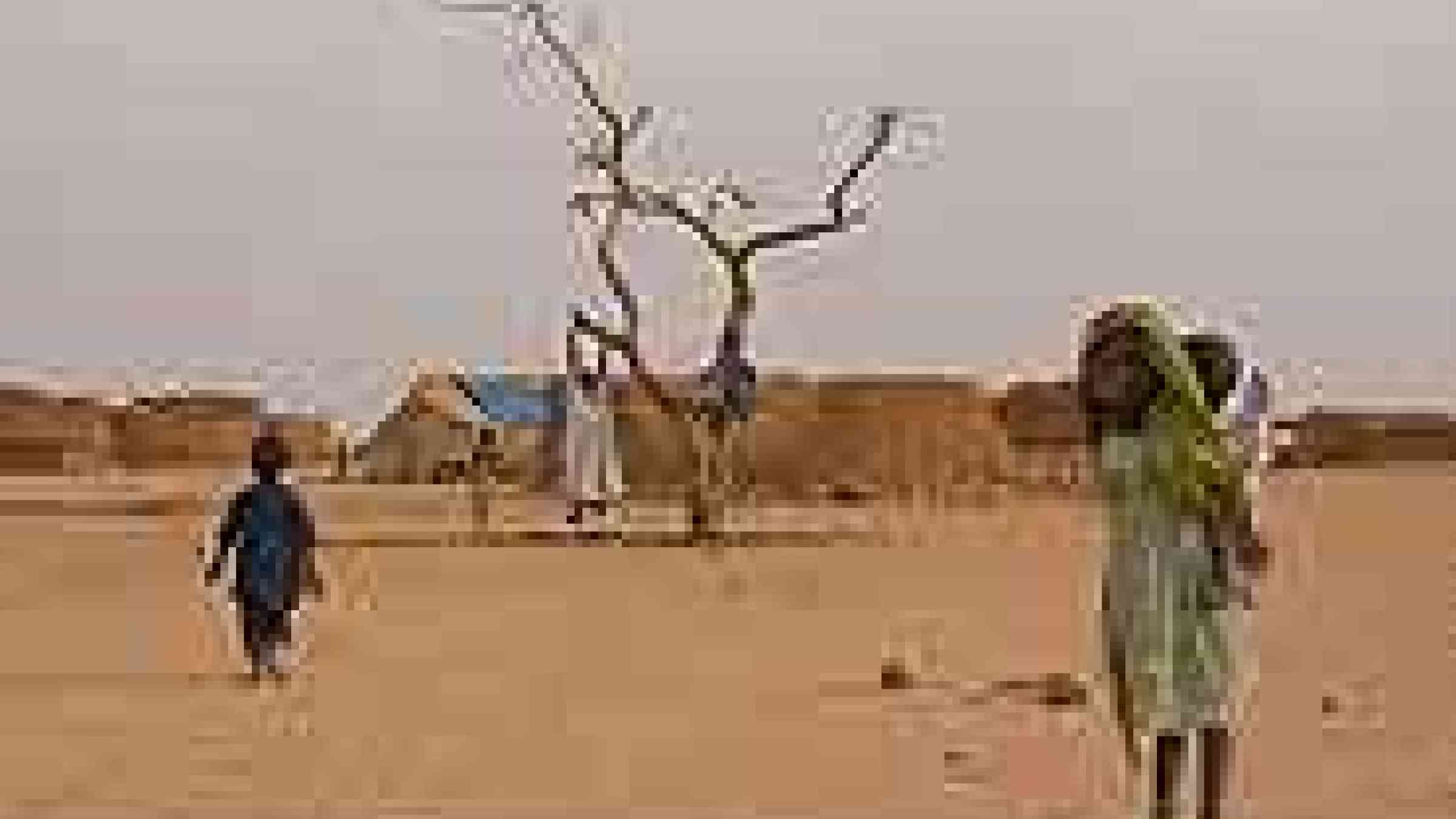
A complex but critical issue is being raised at the UN climate change talks in Bonn, Germany: finding a scale that determines how vulnerable developing countries are to climate change, which will help allocating funds to adapt fairly.
Jan Kowalzig, of the UK-based development agency, Oxfam, told IRIN that the need for a vulnerability index would have to be agreed as a principle, because "it is the link between adaptation and the financing mechanism".
He said the idea should be accepted by all countries and included in the final global climate deal to be made in Copenhagen, Denmark, in December. It will become effective after 2012, when the first phase of the Kyoto Protocol, a treaty to cut greenhouse gas emissions, lapses.
Measuring vulnerability was raised on the third day of the Bonn talks by the representative of the Global Environment Facility (GEF), the financial mechanism of the UN Framework Convention on Climate Change (UNFCCC), who said the facility was examining a possible vulnerability index to fairly distribute resources.
GEF manages two special funds under the UNFCCC: the Least Developed Countries Fund, and the Special Climate Change Fund, which both disburse funds for adaptation projects.
But the big money is expected to come from the Adaptation Fund, also to be operated by GEF, which will raise money from a levy of about two percent on credits generated by the Clean Development Mechanism (CDM) set up under the Kyoto Protocol.
The mechanism allows industrialized countries to earn and trade emission credits by implementing projects in developed countries or developing ones, and put the credits towards meeting their greenhouse gas emission targets.
Which one?
"The principle is a good one, as you need a method to prioritize funding," said Saleemul Huq, head of the climate change group at the London-based International Institute for Environment and Development (IIED), but there were several indices to choose from.
"It can get extremely difficult: there could be debates for instance over whether countries where large numbers of people are affected should be prioritised - like India - or a country like Tuvalu [a Pacific Ocean island], where the numbers are small but the country is extremely vulnerable to sea level rise."
The Intergovernmental Panel on Climate Change (IPCC), an international scientific body, said in its Fourth Assessment Report that the vulnerability of a society to climate change was influenced by its development path, physical exposures, distribution of resources, prior stresses, and social and government institutions.
"All societies have inherent abilities to deal with certain variations in climate, yet adaptive capacities are unevenly distributed, both across countries and within societies," the IPCC report pointed out.
Experts said the Environment Vulnerability Index (EVI) developed by the South Pacific Applied Geoscience Commission (SOPAC), and the UN Environment Programme (UNEP) and their partners, could be used for the purpose.
The EVI uses 50 wide-ranging indicators, such as dry periods, high winds, conflicts and population, to identify the most important factors affecting the vulnerability of states, and to prioritise actions for the whole range of natural and human hazards that can affect the environment.
Ursula Kaly, who works on the index project, said the EVI had a sub-index for climate change. If this were used to measure a country's vulnerability, "it would not require any modification other than updating the data – the EVI was envisaged as being recalculated every five years, with the last calculation at the end of 2004."
What is vulnerability?
The 2007 Human Development Report of the UN Development Programme (UNDP) described "vulnerability" in the context of climate change as "an inability to manage risk without being forced to make choices that compromise human well-being over time."
The term "vulnerable" originates from a Latin word, meaning "to wound" either physically or emotionally.
The IIED's Huq said the debates on which of the many indices to use could take a political turn; Oxfam's Kowalzig commented that "these are technical issues, which can be dealt with after Copenhagen."
jk/he